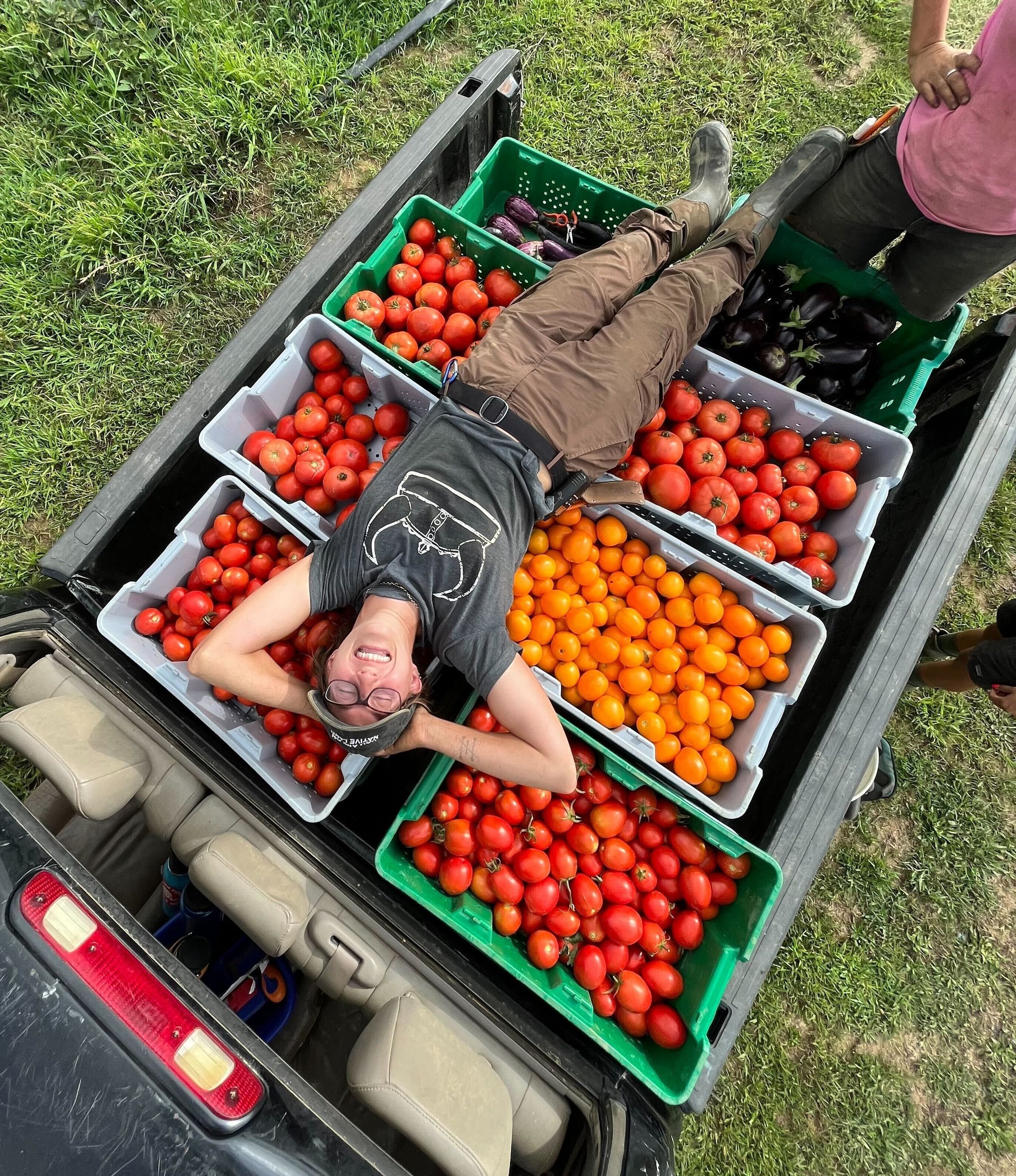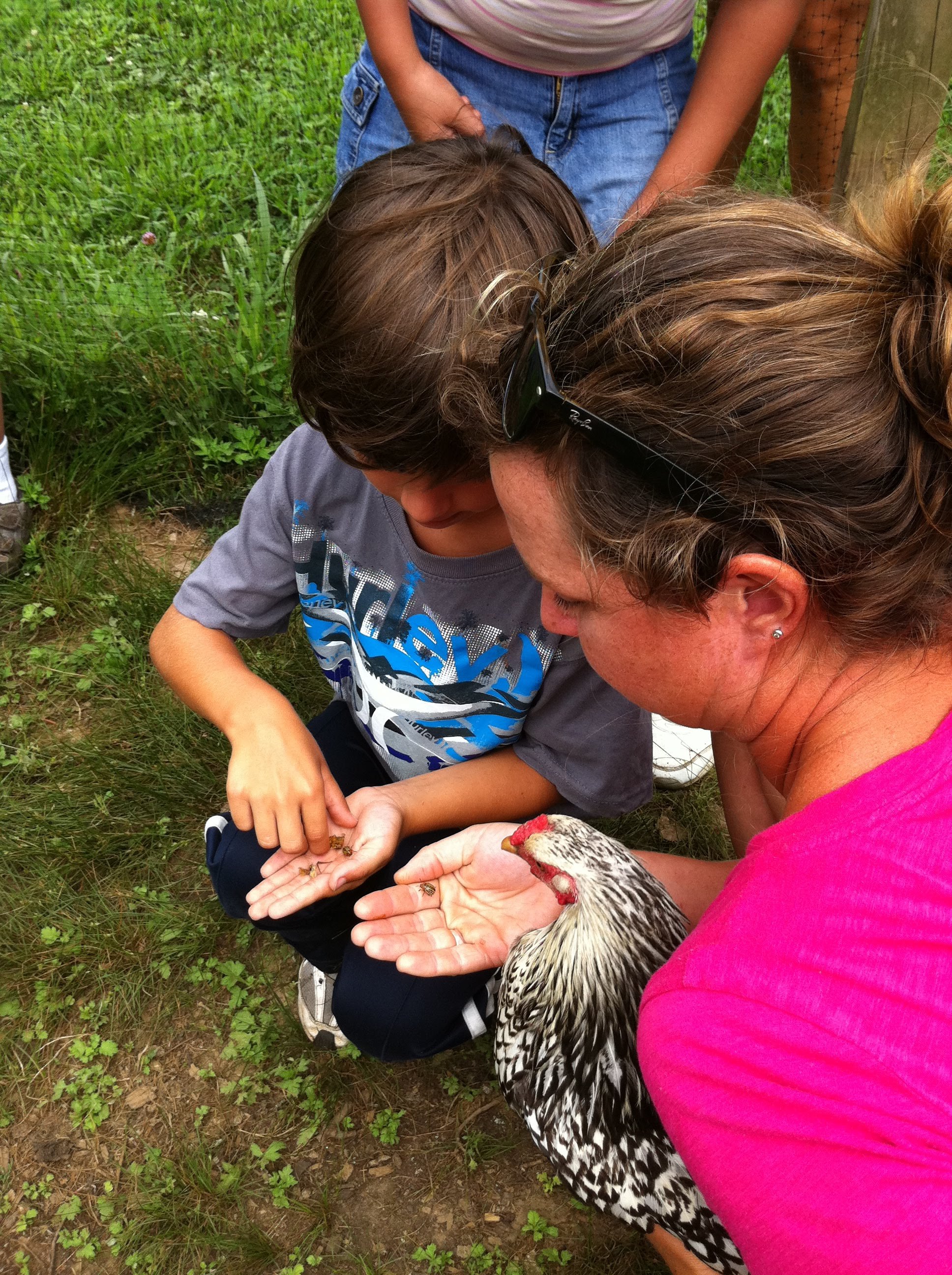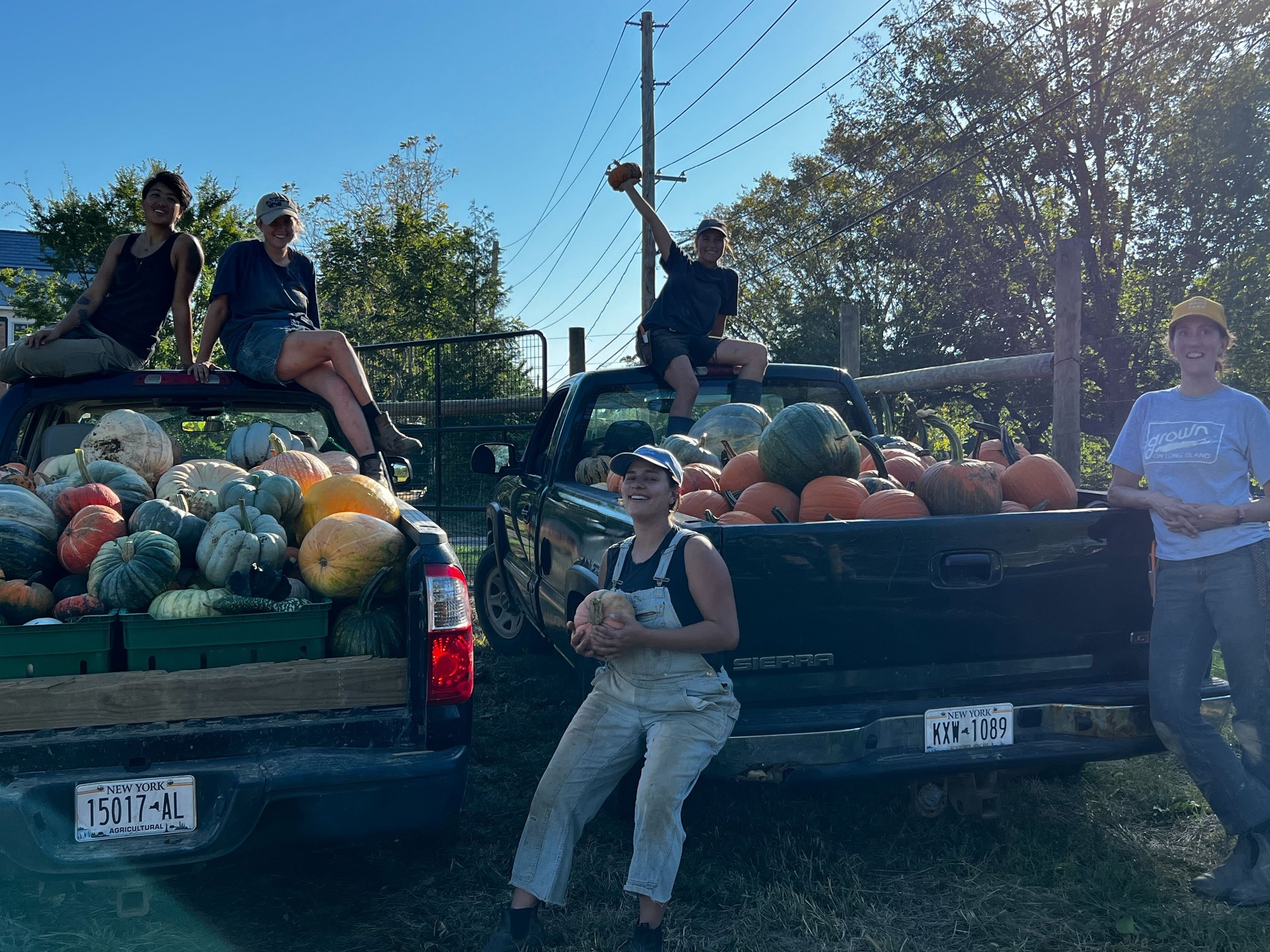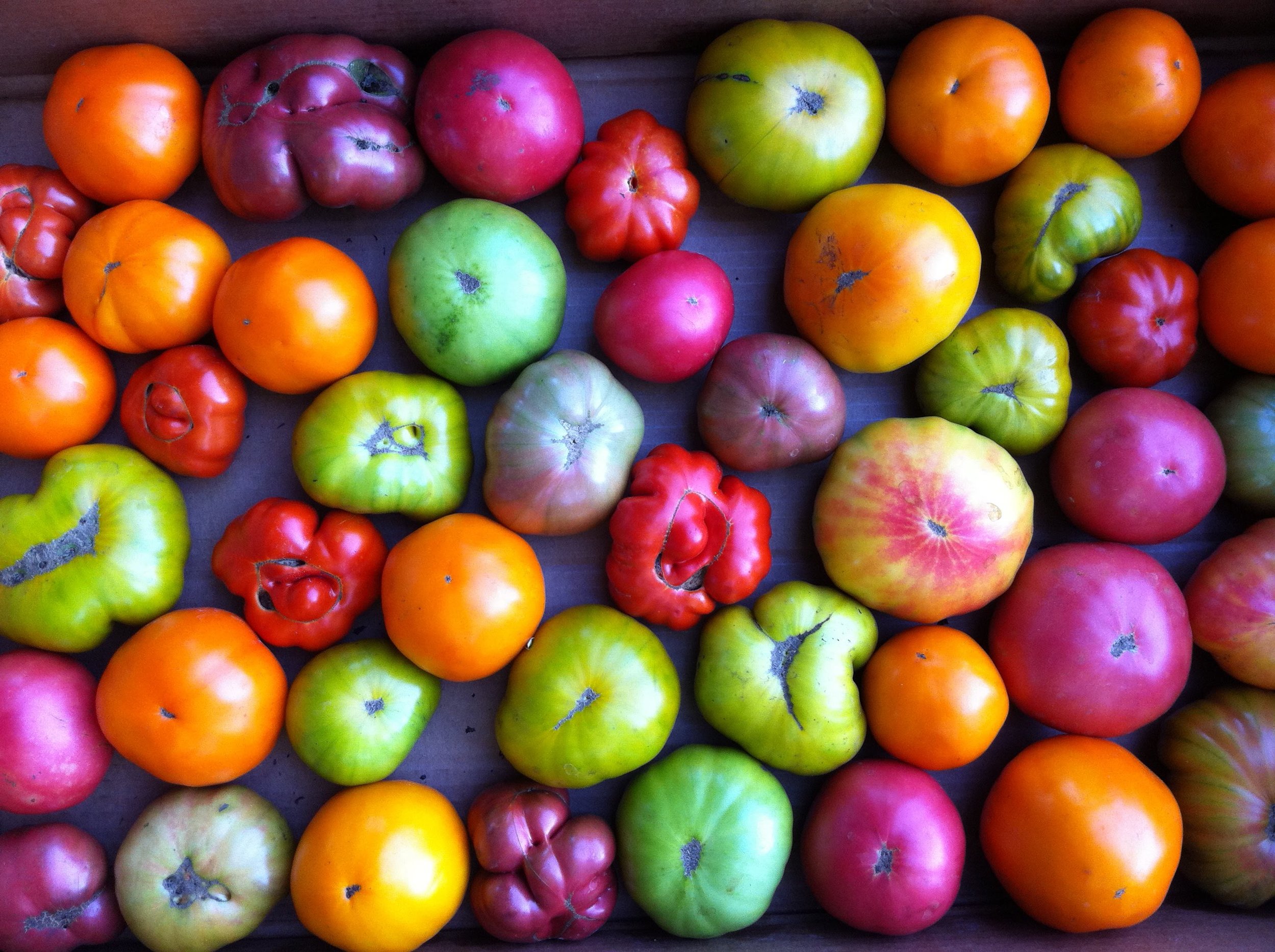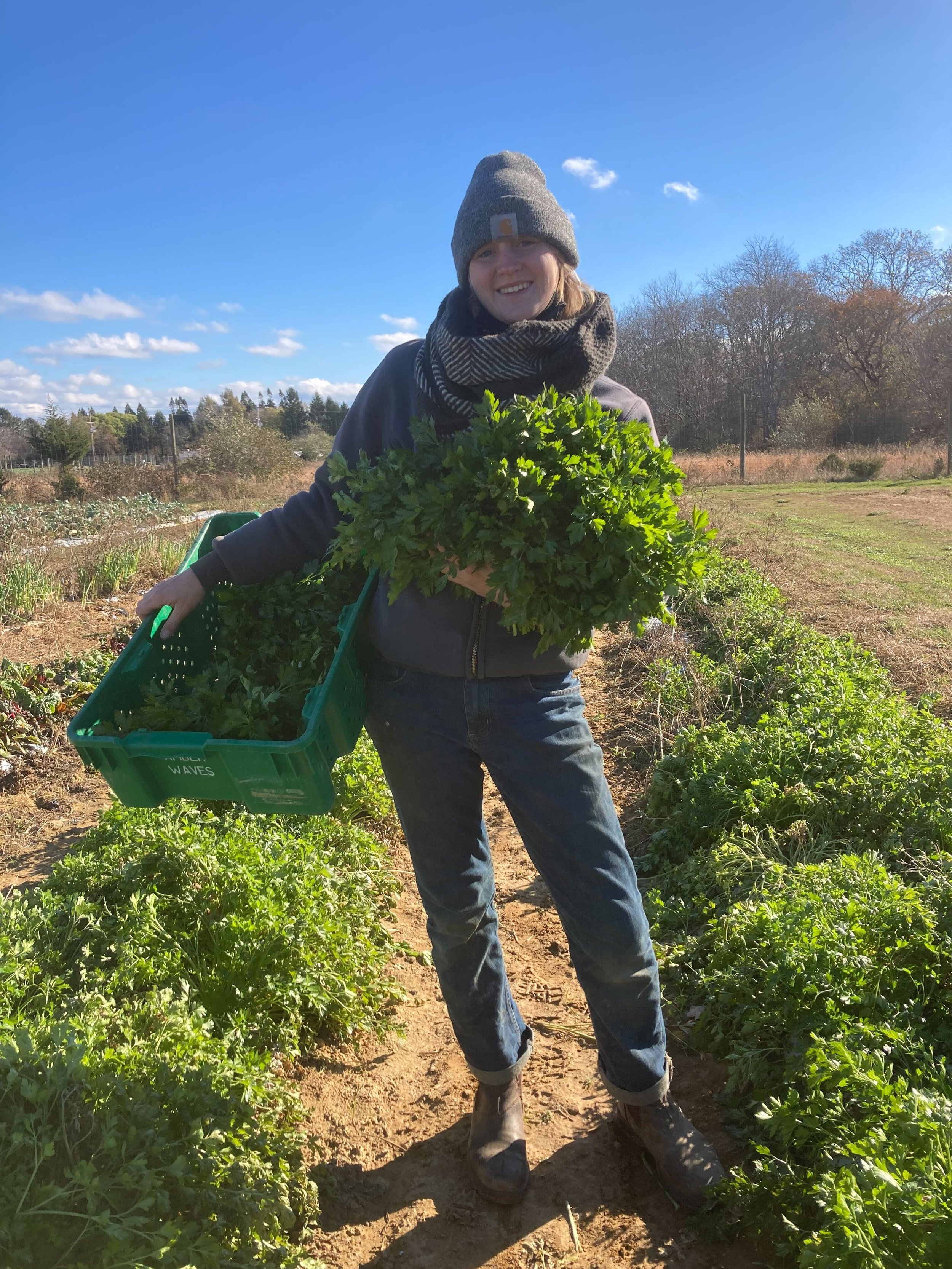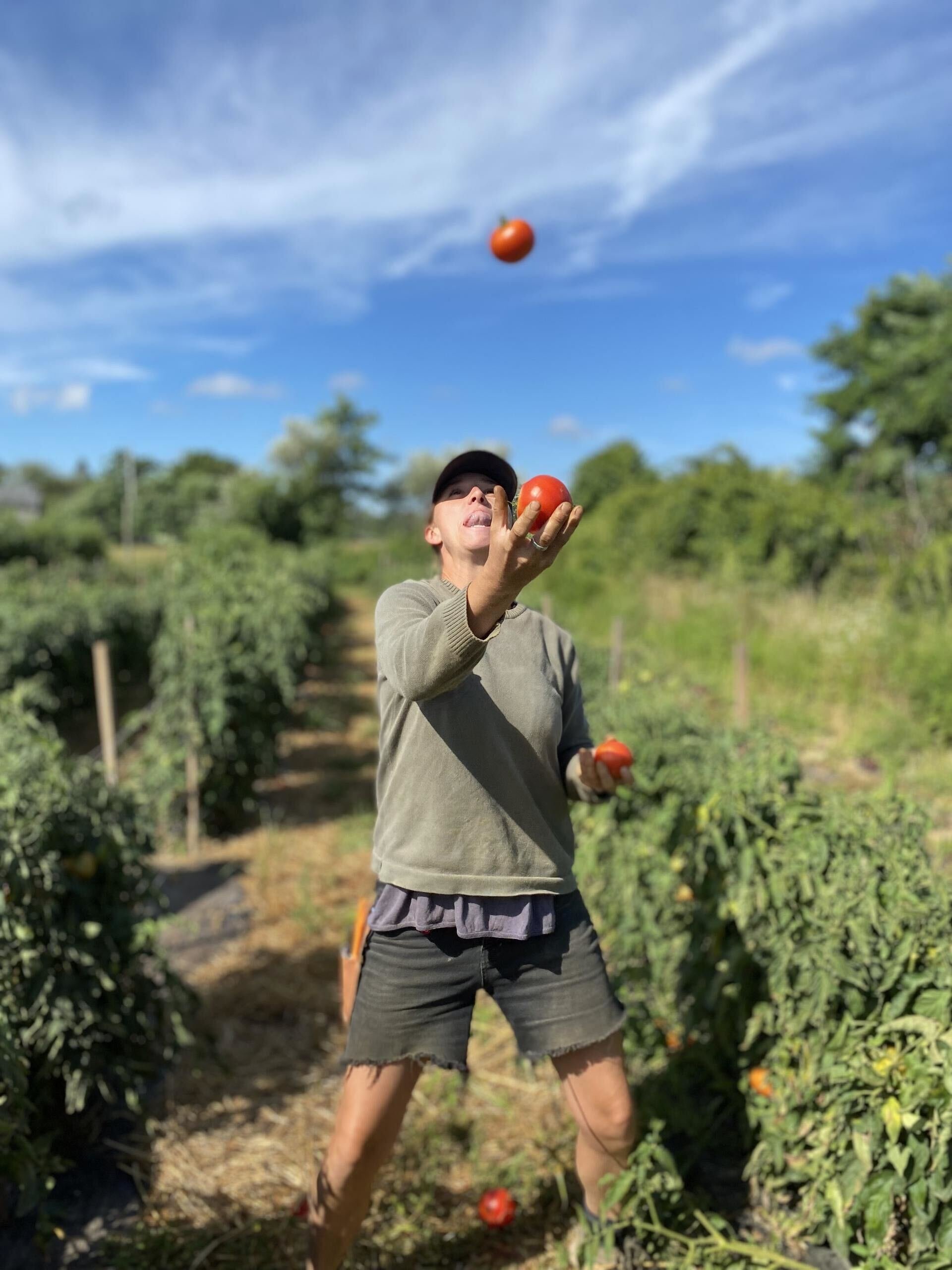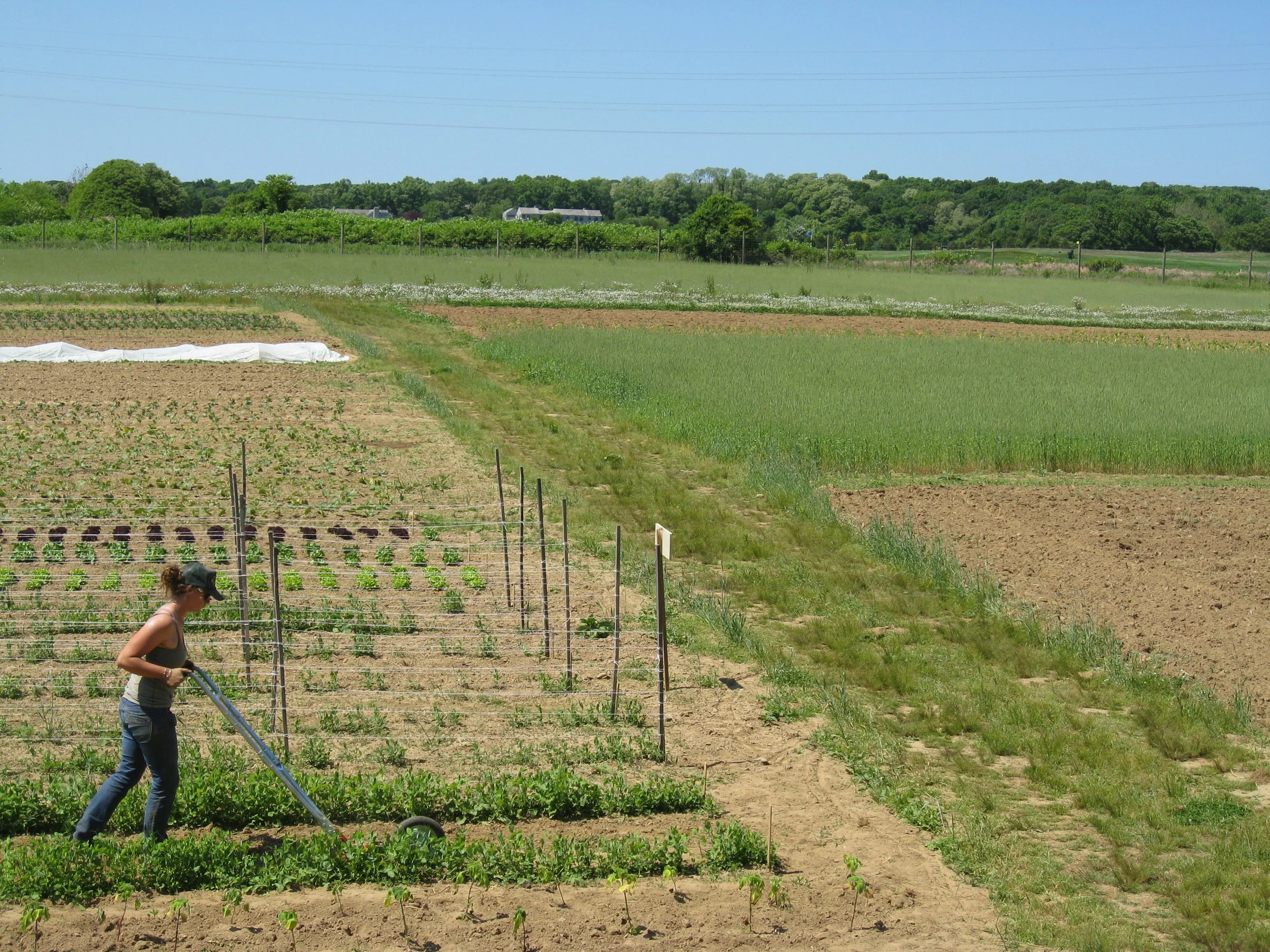
The Farm
Over 16 seasons, Amber Waves has evolved from a single acre of production for an 18-family CSA and one weekly farmer’s market to a patchwork of more than 30 acres across Amagansett and East Hampton. We produce more than 500 varieties of 60 crops, including salad greens, tomatoes, cucumbers and zucchini, garlic, root vegetables, cut flowers, and fresh herbs. As our name suggests, Amber Waves also cultivates grains, primarily winter wheat for whole wheat flour, hull-less oats, culinary rye, and popcorn. Everything we produce is distributed locally on the East End and is available in our retail markets, kitchen, CSA, at local food pantries, and selected local restaurants.
Farmland
In the millennia prior to the arrival of Dutch and English settlers in the mid-17th century, eastern Long Island was inhabited by the Shinnecock and Montaukett Tribes, who thrived as skilled whalers, fishermen, hunters, and farmers. European colonization displaced local native peoples from the hundreds of thousands of acres they once called home, ultimately leading to the complete loss of the Montaukett people and the relegation of the Shinnecock nation to a reservation that occupies only a small fraction of their ancestral lands. Amber Waves Farm acknowledges the exclusions and erasures of Indigenous peoples from food and farming, including the Montaukett and Shinnecock people, on whose unceded land our organization is located. We honor the native people who have stewarded this area for more than 10,000 years and seek to highlight the continuous history of agriculture that began with their work.
Amber Waves is fortunate to be part of Eastern Long Island’s diverse foodshed. Our coastal climate is tempered by the Atlantic, providing ideal conditions for a long growing season that stretches deep into autumn. We are located in zone 7b, where North and South Fork farmers, fishermen, and other producers take advantage of fertile soils and rich coastal waters to cultivate a wide variety of fruits, vegetables, herbs, grains, meat, seafood, honey, beer, wine, sea salt, and more. A variety of prime agricultural soil types create a mosaic across Long Island farm country; ours is primarily Bridgehampton Silt Loam: well drained, high in organic matter, and nearly rock-free. This high quality of soils has enabled hundreds of years of successful agricultural production on the East End, where farmers have specialized in a variety of traditional crops, from corn and potatoes, to cauliflower, to ducks, to tree nursery stock in the modern era.
Amber Waves achieved ownership of our nearly 10-acre homebase farmland in Amagansett in 2016 after eight years as tenants there. This land is encumbered by two conservation easements that protect the land as a working farm in perpetuity. Among these restrictions is an affirmative farming covenant (the land must not lay fallow), and a requirement that 80% of our production must be in food crops. We lease an additional three fields totaling 25 acres that have also been preserved for agriculture and are owned by Peconic Land Trust and East Hampton Town, respectively.
Our Crew
Amber Waves is a teaching farm, and as such, our farm crew is made up of a group of dedicated budding farmers, including farming apprentices, advanced crew members, vegetable and flower management, and seasonal helpers. While we are committed to producing a wide variety of high quality, delicious, and nutrient-dense food for our community, we are also wholly invested in growing the next generation of young farmers. Daily field work and operations are enhanced by our apprenticeship curriculum, which is a dual working and learning model: hands-on fieldwork supported by in-depth written materials and dedicated teaching time. Our farm management consists of former apprentices who have remained a part of the Amber Waves team for multiple seasons, building skills necessary to manage a successful farm operation. Our human crew is rounded out by our three farm cats who provide equally important contributions to pest control and team morale.
Get to know our farm crew
Early Spring on the farm with Amelia
Our Apprentices and Farming Apprenticeship Program
Our Methods
While we are not USDA Certified Organic, we follow the guidelines set forth by the National Organic Program. Our farming practices are based on responsible and sustainable agriculture and land stewardship. We are committed to the thoughtful management of the land, soils, and other natural resources so that we and our community may continue to enjoy them for generations to come. We use sustainable soil-building practices, natural fertilizers, and reduced tillage methods and do not use synthetic fertilizers, pesticides, or herbicides.




